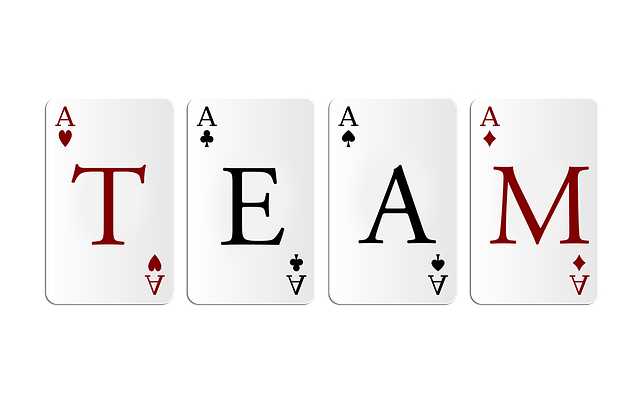By Linda Adams, Abby Curnow-Chavez, Audrey Epstein and Rebecca Teasdale
Great teams seem to achieve the impossible. They build brilliant products, exceed expectations, deliver extraordinary results—and have fun doing it. They make it look easy but if that were true, everyone would be on a great team. And we know that’s not the case. We all know—or have served on—teams where projects fail, budgets are blown, and everyone is miserable.
And the four of us have seen a lot of teams. We started our careers as HR professionals or consultants in different companies in different cities. Each of us worked with a wide range of teams, from the manager level up to the C-Suite, in a wide range of industries. We saw some thrive, many stumble, and more than a few fail spectacularly. We studied each team and looked for patterns to explain the differences in performance.
After a while, three of us joined forces at a high tech start-up in Colorado. Linda, Audrey, and Rebecca worked with smart, young leaders who didn’t have a lot of experience. We coached, mentored, and helped them to lead great teams. And as we discussed our work, we realized we had seen similar patterns and come to similar conclusions.
We all believed that every team could become an extraordinary one. And we knew the best teams were more than a collection of skilled and driven individuals. Great teams had great talent who trusted and pushed one another to exceed expectations. Teammates worked to ensure each other’s success as they worked to ensure their own. And they refused to let each other fail. On the extraordinary teams, we saw people give each other honest feedback and support. They were loyal to one another, the team, and the larger organization. We named these teams, “Loyalist Teams,” and committed to practice and teach these behaviors.

For us, being a Loyalist Team proved essential. As the start-up grew, the workforce exploded and operations extended around the globe. Pressure and expectations scaled accordingly. We knew the needs of the business came first and we made the personal sacrifices that were the price of admission. We caught the flights to Hong Kong and beyond; competed in the daily “my ideas are bigger and brighter than yours” contests; and endured the episodes of anger and aggression that scar a competitive, corporate culture.
We put on our game faces and excelled in the workplace. But outside the office, we were wives, mothers, sisters, and daughters whose relationships with family, friends, and communities were built on trust, mutual respect, and collaboration. And those relationships gave more energy than they took.
The more our careers progressed, the greater the divide between who we were at work and who we were in the rest of their lives. Bridging that gap became harder to justify. And the more success we had, the more we wanted to work in a culture that felt less foreign. We wanted to be our authentic selves with family and friends and at work.
In 2008, at the height of the Great Recession, the three of us decided to leave our corporate careers and commit to each other. We decided to build a consulting firm that would allow us to live the Loyalist Team model and teach it to companies everywhere.
At the time, most companies were scaling back budgets and forgoing anything that wasn’t essential. The market for new business consultants looked bleak. But we knew that we had built something extraordinary at the start-up. By acting intentionally, being explicit about what was acceptable and what was not, and holding ourselves and our teammates accountable to those high standards, we had built a Loyalist organization. We knew we could teach others to do the same. We named our firm The Trispective Group and looked for clients.
At the time, Abby was leading the Global Talent Management function at Newmont Mining Corporation, one of the world’s leading gold companies. As an executive at a Fortune 500 company, she could have hired any well-known, established business consultant. Instead, she met with us, took a leap of faith, and trusted.
Newmont became Trispective’s first client and immediately, the three of us embedded ourselves within the organization. We brought our passion and focused on Newmont’s success, not our own. And from there we soon built a roster of clients that spanned the corporate, nonprofit, and public sectors on five continents. As our business grew, we continued to take care of each other and clients as Loyalists: We put others’ success before our own, had honest conversations, and gave the support that allows people to innovate and push boundaries.
Several years later, Abby decided to leave Newmont to lead HR at another business. She started with endless optimism and soon realized it was seeped in executive dysfunction and sabotage. In this company, people lived on maxims learned in business school (or maybe on the football field): “Win at all costs,” and “Hold your ground, no matter what.”
Abby knew there was a better way. Like us, she thought honesty and trust could trump bravado. And that collaboration could lead to accelerated, sustainable growth. Abby wanted to continue the work she loved without the exhausting exercise of keeping her game face on. Like the three of us, she wanted to play to win while being her authentic self. The solution quickly became obvious: Abby would join Trispective as the fourth partner.
Ten years, hundreds of happy clients, and one book later, we still offer a full range of consulting services across a wide range of industries. And with any client, we embed ourselves into the team, learn the system, and provide tools to improve performance. As a Loyalist Team, we share information and resources, hold one another accountable, and ensure that our partners don’t fail. We practice what we teach.
Many CEOs rarely hear the unvarnished truth, but our clients tell us they know we will challenge their assumptions, question their conclusions, and deliver honest feedback. As women working with an overwhelmingly male population of executives, we offer something different than other consultants. We never show up as ego-driven gurus, with a “This is how you do it,” set of commandments. We show up as authorities who care. We trust our abilities and because we’re not trying to win the “whose idea is bigger and brighter” game, we don’t play offense. Clients, then, can stop playing defense.
When one of us walks into a board room or executive team meeting, she is often the only woman in the room. But she is clear in her role and knows she has the goods to move a team forward—and that is the only goal. With that clarity, everyone in the room can relax. We ask open-ended questions and because we’re not listening for a right or wrong answer, the client can provide the real data that leads to better decisions and more intentional actions.
We never consider anyone or any team beyond reach. As we teach our clients, and write in our book, The Loyalist Team, every individual, team and organization can improve performance. No matter how your team is performing today, with the right tools and resources, you can become an extraordinary team. You can become a Loyalist Team.

Linda Adams, Abby Curnow-Chavez, Audrey Epstein and Rebecca Teasdale are partners in The Trispective Group and co-authors of The Loyalist Team: How Trust, Candor and Authenticity Create Great Organizations.

